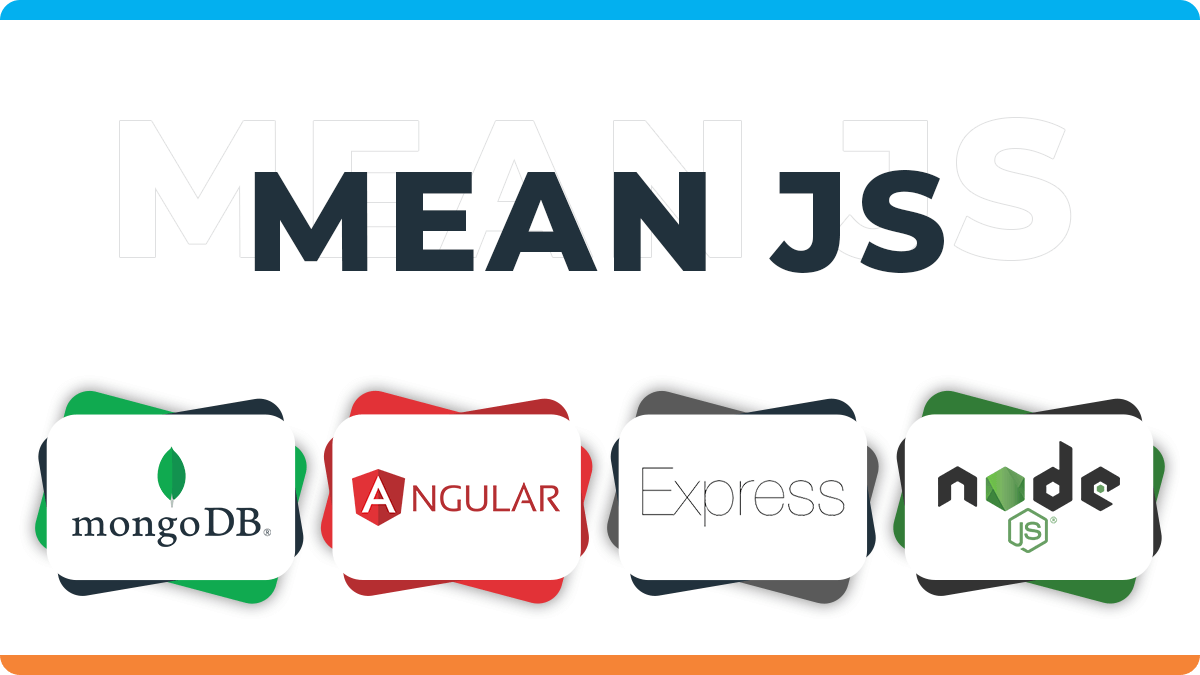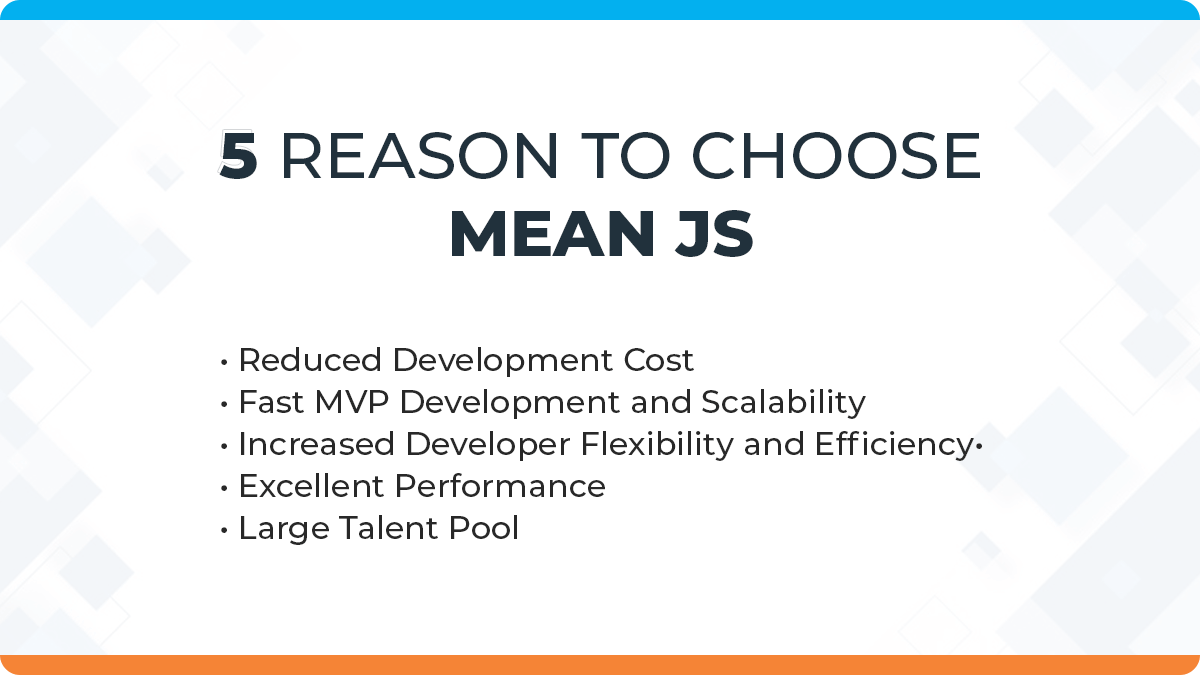Web development is a fast-paced and diverse environment. It may be hard to navigate in such a variety of frameworks and technologies, and choosing the technology that suits you best may also prove to be challenging.
Having built dozens of successful web applications for startups and businesses worldwide, we at Eastern Peak know the ins and outs of every web development technology out there. In this article, we will shed some light on one of the most talked-about stacks, MEAN.JS.
What is it, and why choose MEAN.JS for your next project? Read our insights below.
What Is MEAN.JS?

MEAN.JS is a web development solution based completely on full-stack JavaScript. The name is an acronym, standing for MongoDB, Express, Angular, and Node.js.
- MongoDB is an open-source NoSQL database using a document-oriented data model. This means it relies on the architecture consisting of collections and documents instead of tables and rows (as in relational databases). Thanks to its architecture, this database is extremely scalable and can handle large volumes of data.
- Express is a lightweight server-side JavaScript framework. As a part of the MEAN stack, it is used together with Node.js to simplify the development process. It makes it easier to write secure, modular, and fast applications.
- AngularJS (or simply Angular when referring to the latest versions of the framework) has long become a “default” web frontend JavaScript framework. Built and maintained by Google, the framework allows for rapid development of dynamic, single-page web apps. Its modular structure simplifies development and testing and allows for easy scalability.
- Node.js is a JavaScript-based runtime built on Chrome’s V8 engine. By compiling the JavaScript source code to native machine code before the execution, it allows for building scalable and performant web apps. Node.js has a rich ecosystem of open-source libraries and components, including an npm (Node.js package manager).

Why MEAN.JS? Rapid Web Development With Full-stack JavaScript
While each of the listed technologies can be used as a standalone solution, they really shine when used in a bundle. Namely, the MEAN.JS stack offers the following benefits for business owners:

Reduced Development Cost
Plus, MEAN.JS, as well as its rich ecosystem, is completely open-source and free to use. One of the main benefits a business can get out of using the MEAN stack is overall lower expenses. Thanks to extensive code sharing and reuse within the stack (remember, MEAN is all about JavaScript), the development time can be reduced, leading to a lower development cost.
Fast MVP Development and Scalability
In addition to a fast time to market, the MEAN stack provides a solid foundation for building scalable software products. A large number of additional frameworks, libraries, and reusable modules are available within the stack (npm registry alone lists almost 500,000 packages) which contributes to increased development speed: ready-made solutions can significantly save time while making development less strenuous. That is why startups love this stack.
Read more: In-house developer VS Outsourcing!
Increased Developer Flexibility and Efficiency
This works particularly well for smaller web projects, such as dynamic single-page applications, complimentary business apps, or when you can assign the whole project to just one MEAN developer. Hiring MEAN full-stack developers for your project gives you a competitive advantage: better flexibility and increased team efficiency. All of your team members will “speak the same language” (i.e. JavaScript); therefore they will be able to understand each other and seamlessly switch tasks, resulting in better productivity. This facilitates collaboration and eases project management efforts within your team.
Excellent Performance
Node.js, the heart of the MEAN stack, is known for its outstanding performance. According to a number of benchmarks, the technology outperforms a number of other backend programming languages, including PHP, Python, and Ruby.
Large Talent Pool
JavaScript remains the most popular programming language in the world, based on the annual StackOverflow survey. This makes hiring developers a little less challenging as there is a large talent pool. The number of job postings, as well as the number of developers searching for MEAN stack jobs, are steadily growing (as compared to another web development stack, LAMP).
When Should You Choose MEAN.JS for Your Project? Best Use Cases
The MEAN stack is perfect for building all kinds of web applications, from dynamic single-page applications to complex enterprise and social media apps.
For example, it can be used in different types of apps:
- Complimentary business apps.
- Enterprise apps.
- Web apps using big data.
- Multimedia streaming apps.
- Real-time applications (social networks, chats, and forums).
While it is difficult to say which companies use the MEAN.JS stack in its entirety, Node.js has gained wide adoption among top-tier companies including PayPal, LinkedIn, Netflix, Walmart, and Uber.

See the original article here and Feature Images Source here
